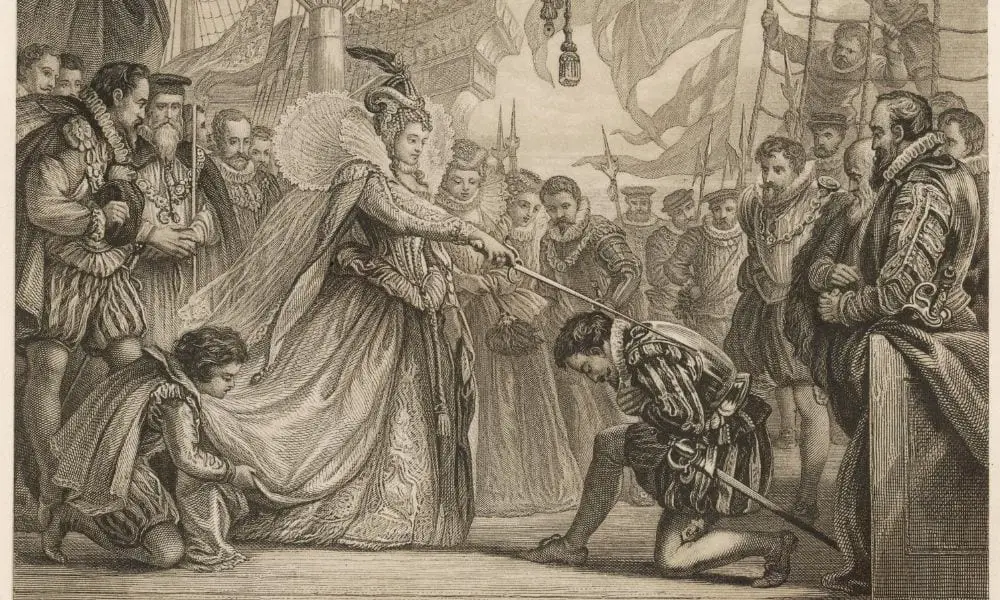

It’s been 245 years since America broke things off with the Crown, but even stateside trivia buffs need to know the history of the English monarchy. We’ll look back on some of the most important English monarchs—particularly, the changes to the English language and literature that transpired during their respective reigns.
1066—a year our English teachers drilled into our heads. The Norman Conquest of England over the Anglo-Saxons marked the beginning of England and English as we know them. William the Conqueror—or rather Guillaume le conquérant—brought French laws and aristocracy to the isle, as well as a Norwegian-tinged dialect of the French language. The fusion of the continental invaders’ Norman French with the native Old English brought a Latinate lexicon into a Germanic structure, creating Middle English—the first form of our language that is truly recognizable as such.
King John was a man who knew how to bargain. In 1215, another red-letter year of English history, John and a council of powerful English landowners signed the Magna Carta, or Great Charter—the document in which the Crown agreed not to levy taxes without the consent of a baronial council, a body that soon evolved into what we know now as the British Parliament.
Times were good under the Virgin Queen. Elizabeth’s reign saw the growth of the Church of England and planted the seeds of the British Empire. Elizabethan England represents a golden age of English letters, with the sonnets of Edmund Spenser, the elegies of John Donne, the plays of Ben Jonson and Christopher Marlowe, and of course, the Bard himself, William Shakespeare, whose influence on the English language is immeasurable.
James VI of Scotland and the first of England was a dual monarch with dual achievements—though some Scots may bristle at that. The successor to Queen Elizabeth while the reigning King of Scotland, James effectively merged the then-independent kingdoms of Scotland and England, a union which continues to this day—for now. An equally important contribution to history is his authorization of an English translation of the Bible, which was published in 1611 and continues as a preferred Bible translation to this day.
It was under Queen Victoria that the effects of the Industrial Revolution truly took hold in Britain. As a backlash to the rigor and reason of industry, Victorian England saw a newfound interest in the romantic and spiritual aspects of life. The Victorian era gave birth to the English novel as we know it. Charles Dickens, the Brontë sisters, and George Eliot all flourished in this time, often critiquing their era.
A list of the most important English monarchs wouldn’t be complete without the reigning queen. Over her remarkable 69-year reign, Elizabeth II has maintained the symbolism of the British Crown at home and abroad, despite republican sentiments wishing to do away with the monarchy. Indeed, to this day, she is still the official head of state in 16 countries.
Additional Resources:
Mark Twain
Edgar Allan Poe
Pablo Picasso
JD Salinger
Van Gogh
Roofing is a crucial aspect of a building's structure as it protects the interior from…
When it comes to maintaining a home, one of the most important aspects to consider…
Galveston, Texas, is quickly emerging as a premier destination for deep-sea fishing enthusiasts in search…
In the ever-evolving landscape of construction and building maintenance, sustainability has emerged as a crucial…
Minnesota, celebrated for its picturesque rural landscapes and vibrant urban centers such as St. Paul…
In the realm of kitchen renovations, cabinetry plays a pivotal role in shaping both the…